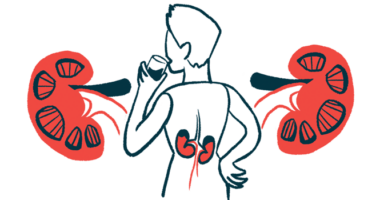Infections Triggering MPO-AAV Should Be Considered in Treatment, Review Suggests

In some cases, infections may trigger the development of ANCA-associated vasculitis (AAV) with antibodies against the myeloperoxidase (MPO) protein, but the condition — known as AAV-MPO — typically regresses after the infection is treated, a systemic review finds.
However, the use of immunosuppressive medications to treat the vasculitis may significantly impair the immune system from clearing out the infection.
Therefore, infections should be considered in treating patients with MPO-AAV, the findings suggest.
The study, “Infection-induced myeloperoxidase specific antineutrophil cytoplasmic antibody (MPO-ANCA) associated vasculitis: A systematic review,” appeared in the journal Clinical Immunology.
AAV is an autoimmune disorder in which autoantibodies — antibodies that mistakenly target healthy cells — cause damage to the cells lining blood vessels. In most cases, these anti-neutrophil cytoplasmic autoantibodies (ANCAs), which activate immune cells to destroy blood vessels, target one of two enzymes: MPO or proteinase 3.
The production of autoantibodies that target MPO, known as MPO-ANCAs, can be induced by bacterial, fungal, and viral infections. However, the clinical features and outcomes of infection-induced AAV have not been well characterized.
Now, investigators in Greece and Cyprus conducted a systematic review to identify and describe reported cases of MPO-AAV brought on by infection.
“To our knowledge, this is the first systematic review to identify and present all relevant cases of infection-induced MPO-AAV,” the researchers wrote.
The review include original studies, including case reports and group studies, published until February 2020. A total of 618 studies were identified, of which 18 articles describing a total of 23 patients were included.
The patients had a mean age of 50.5 years and were 60.9% female. Of the 13 studies that reported the time between infection onset and development of AAV, the median time was three months, with a range from three weeks to 10 years.
AAV associated with kidney involvement was confirmed by biopsy in 60.9% of patients. Other affected tissues were the lungs, muscles, skin, and nerves. A total of five patients (21.7%) died after their AAV diagnosis, including one from an undiagnosed and untreated infection. Others died from complications due to vasculitis despite treatment, or had discontinued treatment.
Among the 18 surviving patients, 12 (66.7%) experienced regression of their AAV symptoms after the infection was resolved. Two additional patients experienced a partial disease remission, and relapse of infection and vasculitis was reported in one case. Of the 16 patients whose ANCA levels were measured during follow-up, 14 experienced significant decreases.
A total of 15 different pathogens were associated with the infection-induced MPO-AAV cases. Of the 23 infections, 17 were caused by bacteria and six by viruses.
Most patients (78.3%) received immunosuppression treatment for vasculitis, primarily high-dose corticosteroids, with eight also receiving the chemotherapy cyclophosphamide. However, the type of infection and use of immunosuppressive treatment were not significantly associated with survival or treatment response, the researchers found.
“It is likely that a patient presenting with symptoms typical of AAV may be suffering from an infectious process manifesting as vasculitis,” the researchers wrote. “Clinicians should be alert for the presence of an underlying infection in patients presenting with MPO-AAV, especially in cases that do not respond to aggressive immunosuppression.”
Among the limitations of the study are the small number of articles included in the review, the inclusion of only case studies or case series, and the potential underestimation of infection-induced MPO-AAV and its mortality due to selection bias of published case reports.





